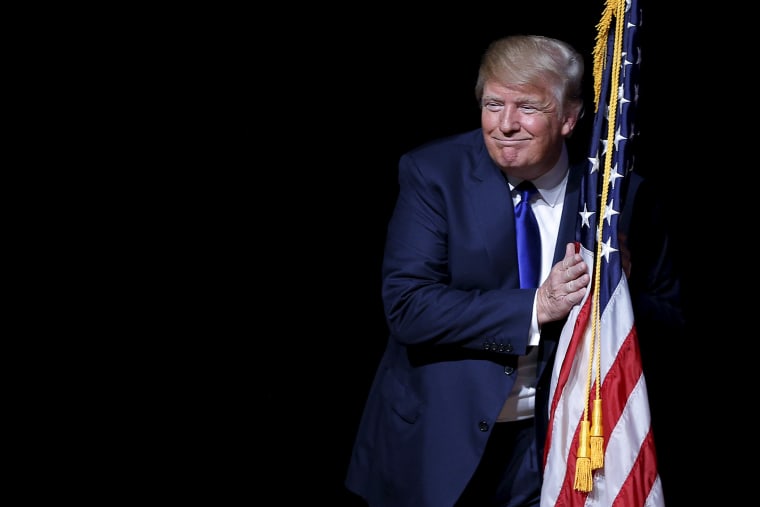There was a degree of irony to the circumstances. Donald Trump hosted a White House event yesterday for a group of right-wing media gadflies, and while the intended purpose was to whine about a social-media conspiracy theory, the stated purpose was to celebrate the free-speech rights of online, far-right reactionaries.
The problem -- well, one of the problems -- is that the Republican likes to talk about the constitutional principle without knowing what it means.
The president gave them a unique definition of the Constitution's First Amendment free speech protections. "To me free speech is not when you see something good and then you purposefully write bad. To me that's very dangerous speech and you become angry at it. But that's not free speech."
Actually, that is free speech. The only thing "dangerous" here is an amateur president with authoritarian instincts trying to define free-speech rights in a way that's wholly at odds with his own country's civil liberties.
Indeed, I'd love to hear Trump elaborate on his perspective. He believes those who "see something good" shouldn't "purposefully write bad." Is it safe to assume he's referring to his own presidency as the "good" thing about which critics shouldn't publish "bad" commentary?
Is this what the Republican refuses to consider "free speech"?
Jon Chait added yesterday, "Trump's invocation of 'free speech' is consistent: His entire goal is to promote supportive views and suppress hostile ones. And the willingness of virtually the entire conservative movement to support or tolerate his cynical conscription of free speech to intimidate the media reveals how little it, too, cares about freedom."
Complicating matters, this wasn't the only recent example of Trump needing a First Amendment refresher course.
During his presidential transition process, for example, Trump said it was "very unfair" that his critics were allowed to protest against him. Soon after, the Republican said theatrical productions should be "safe" spaces at which Mike Pence shouldn't face mild criticisms. He's also repeatedly suggested official sanctions against comedy shows that dare to hurt his feelings.
What's more, as regular readers know, Trump's contempt for American journalism is deeply at odds with our constitutional principles, including his assertion in 2017 that he considers it "disgusting" that the press "is able to write whatever it wants to write."
That came on the heels of the president suggesting he might want to challenge the broadcasting licenses of outlets that run stories he doesn’t like.
Which came on the heels of Trump calling on Congress to investigate American media outlets that publish news he disapproves of.
Which came on the heels of Trump telling a rally audience that journalists are “really, really dishonest people” and “bad people,” who “don’t like our country.”
Which came on the heels of Trump describing the media as “the enemy of the American people.”
Which came on the heels of Trump asking whether it’s time to “change libel laws,” presumably to allow him to target news organizations he doesn’t like in court.
Which came on the heels of Trump touting the benefits of the British system, where the First Amendment doesn’t exist.
In February 2017, the president delivered a speech in which he boasted, “I love the First Amendment. Nobody loves it better than me. Nobody.”
Perhaps this was an ill-considered attempt at humor, and the rest of us weren’t in on the joke.
